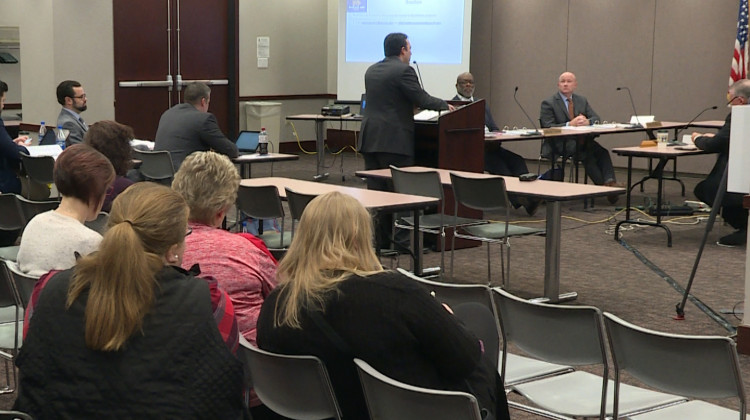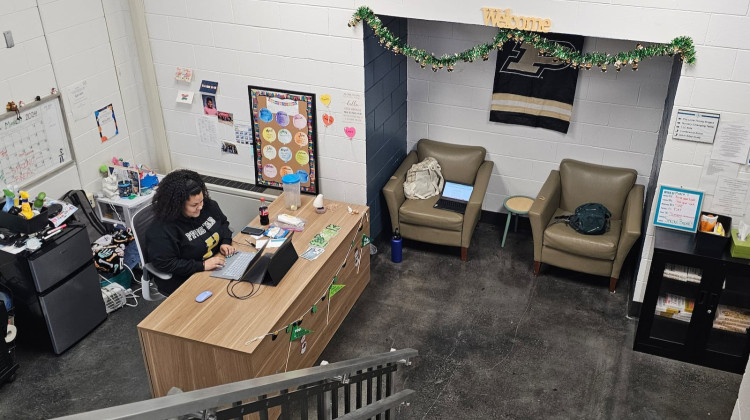
A handful of CTE and FCS teachers listen to state officials discuss the DWD's funding framework that the state board approved at its final meeting of 2019
Jeanie Lindsay/IPB NewsThe Indiana State Board of Education approved state funding cuts for some family and consumer science (FCS) classes starting next school year during a special meeting Friday.
Lawmakers made a change last spring that trickled down to the Department of Workforce Development’s list for CTE, or career-technical-education, courses that the state will help schools pay for. Those changes were spurred by recommendations made by the Governor’s Workforce Cabinet (GWC).
The funding framework adds a series of more advanced courses in areas like manufacturing and information technology. But some classes that teach students skills focused on things like nutrition and personal finance didn’t make the cut, prompting concerns from teachers, superintendents, and board members.
Board member and teacher Greg Gastineau says for some kids, those classes are vital.
“As we go forward we really need to emphasize the whole child. The development of the whole student,” he says.
But GWC executive director PJ McGrew says moving CTE funding away from a handful of FCS courses deemed “foundational,” was meant to incentivize schools to offer more advanced CTE courses with CTE-specific funds.
“It was not meant to devalue any of those courses, it was really actually to highlight how valuable they were to all students, not just those students that were pursuing career and technical education,” he says.
But McGrew says the goal is to get schools offering more advanced courses aligned with possible student career paths and the state’s shift toward more workforce development oriented education policies, like the new graduation pathways.
Ultimately the board approved the funding levels – by law they have to. But, schools can file an appeal with the DWD.
Contact Jeanie at jlindsa@iu.edu or follow her on Twitter at @jeanjeanielindz.
 DONATE
DONATE








 View More Programs
View More Programs

 Support WFYI. We can't do it without you.
Support WFYI. We can't do it without you.